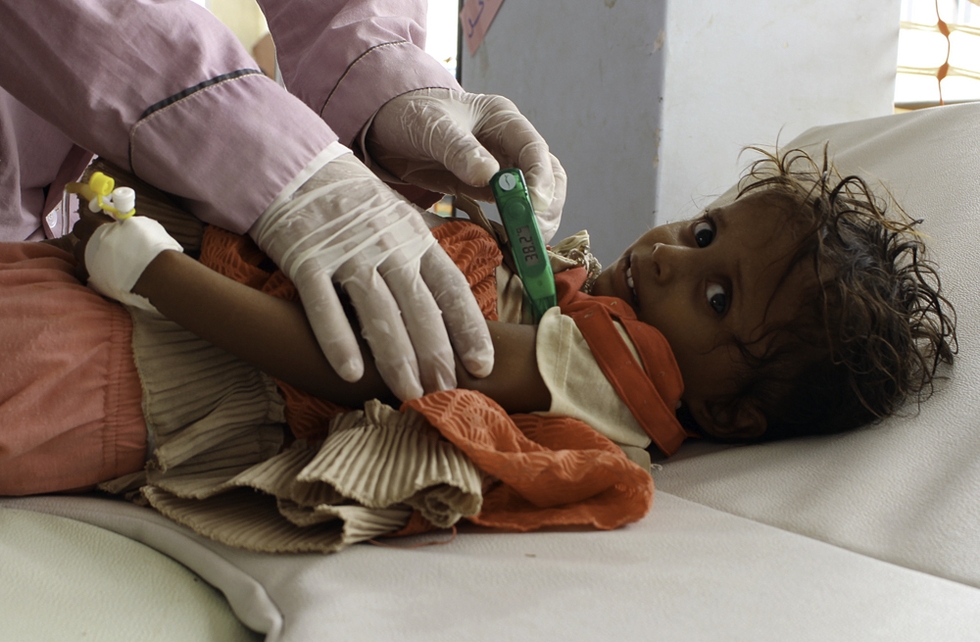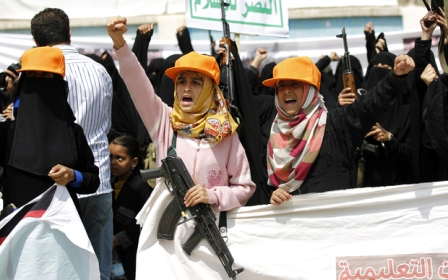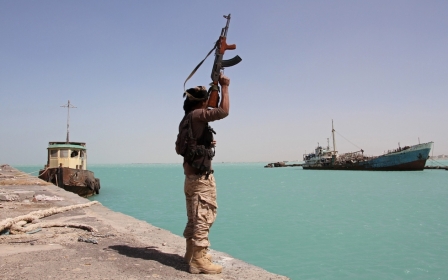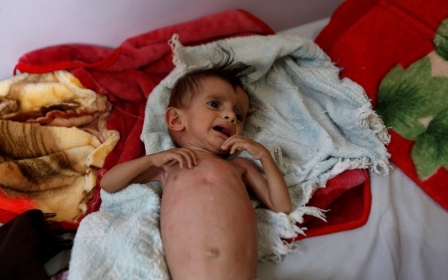Yemen's cholera 'hotspots' home to a million starving children

More than one million malnourished children aged under five in Yemen are living in areas with high levels of cholera, the charity Save The Children warned on Wednesday as it began sending more health experts to the worst-hit areas.
Cholera has killed more than 1,900 Yemenis and infected 425,000 since the outbreak began in April 2015.
Save the Children said children under the age of 15 are now accounting for about 44 percent of new cases and 32 percent of fatalities in Yemen where a devastating civil war and economic collapse has left millions on the brink of starvation.
The charity said new analysis of district-level data revealed more than one million malnourished children aged under five - including 200,000 with severe acute malnutrition - were living in cholera "hotspots".
"The tragedy is both malnutrition and cholera are easily treatable if you have access to basic healthcare," said Tamer Kirolos, Save the Children's Yemen operations director.
"But hospitals and clinics have been destroyed, government health workers haven't been paid for almost a year, and the delivery of vital aid is being obstructed."
Cholera, which is spread by eating food or drinking water contaminated by the vibrio cholerae bacterium, can kill within hours if untreated.
The cholera outbreak prompted the UN last week to revise its humanitarian assessment and it now calculates 20.7 million Yemenis are in need of assistance, up from the previous figure of 18.8 million in a population of 28 million.
Oxfam has projected the number of people infected with cholera could rise to more than 600,000 - "the largest ever recorded in any country in a single year since records began" - exceeding Haiti in 2011.
Save the Children said it operates 14 cholera treatment centres and more than 90 rehydration units in Yemen but was sending more health experts to the worst-hit areas.
Millions are malnourished in Yemen where famine looms, the UN says.
The nation has been divided by civil war since March 2015 as the internationally recognised Yemeni government battles the Shia Houthi rebels.
A coalition of states led by Saudi Arabia intervened in the conflict in 2015 to support government forces against the rebels who are supported by Saudi Arabia’s region rival, Iran.
The Saudi-led coalition has repeatedly been accused of blocking aid to Yemen including most recently the UN denouncing the coalition for allegedly obstructing jet fuel deliveries to its planes.
New MEE newsletter: Jerusalem Dispatch
Sign up to get the latest insights and analysis on Israel-Palestine, alongside Turkey Unpacked and other MEE newsletters
Middle East Eye delivers independent and unrivalled coverage and analysis of the Middle East, North Africa and beyond. To learn more about republishing this content and the associated fees, please fill out this form. More about MEE can be found here.




